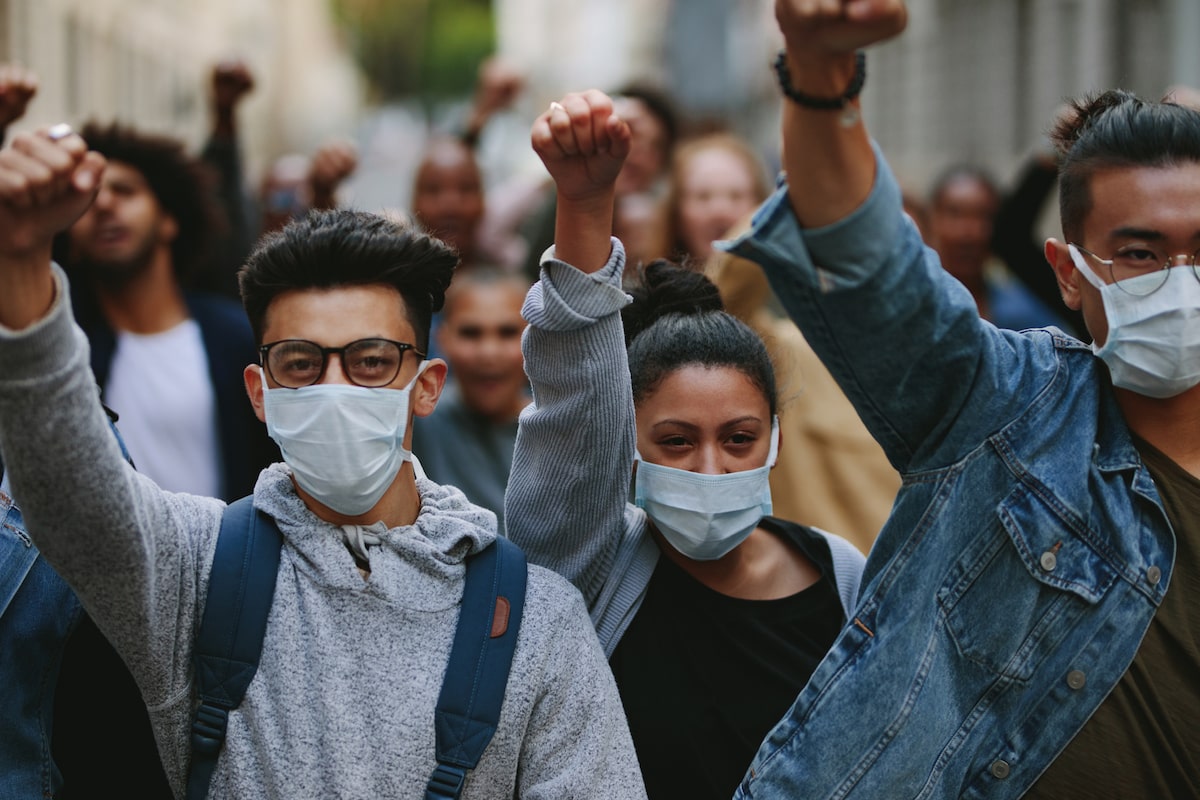There’s one thing that doesn’t care about your politics in the recent protests across the United States – COVID-19.
Demonstrations, protests and marches might prove to be “seeding” or “super-spreader” events that trigger waves of new virus infections, according to Dr. Robert Redfield, director of the Centers of Disease Control and Prevention. The concern is that thousands of people marching close together and chanting increase the chances that infected people share droplets containing the COVID-19 virus with each other.
“It’s always a concern that any large gatherings can lead to infectivity,” said Dr. Ajay Kumar, chief clinical officer at Hartford HealthCare. “We will see the impact over time.”
While Dr. Kumar did note that many people at Connecticut protests over the past two weeks have been wearing protective masks and the protests take place outdoors, the danger of infection still exists.
He urged anyone participating in a protest to self-quarantine at home for 14 days and be tested for COVID-19 after five days. Because the virus incubation period is two to five days, being tested too early, he said, might give a false negative result. Of those people who are exposed, he noted that 80 percent will not have significant symptoms but will still be able to spread the disease and 98 percent will recover with minimal problems.
While the state still recommends avoiding large groups, if you must attend a protest, consider these tips for being safe:
- Stay home if you have a fever or other COVID-19 (body aches, trouble breathing) symptoms.
- Wear a mask at all times. You might even consider wearing a clear plastic face shield over the mask. Choose one that extends from ear to ear and below your chin, without a gap between the shield and your forehead.
- Carry water and hand sanitizer to keep your hands free of germs.
- Stay as far away as possible from anyone talking loudly, chanting or singing without a mask on.
- Try ways other than loud chanting to show your support, such as using a bullhorn, clapping or ringing a bell.
- Do not touch or share objects with people who live outside of your home.
- Make and bring a small, simple first-aid kit containing adhesive bandages, gloves and water.
- If you are exposed to tear gas or pepper spray, rinse, don’t rub your eyes with water. Use an ice pack to help soothe your burning skin.
Need to see your doctor? New Patient? For more information about Hartford HealthCare virtual health visits, click here.
Click here to schedule a virtual visit with a Hartford HealthCare-GoHealth Urgent care doctor.
Stay with Hartford HealthCare for everything you need to know about the coronavirus threat. Click here for information updated daily.
Questions? Call our 24-hour hotline (860.972.8100 or, toll-free, 833.621.0600).
Get text alerts by texting 31996 with COVID19 in the message field.

